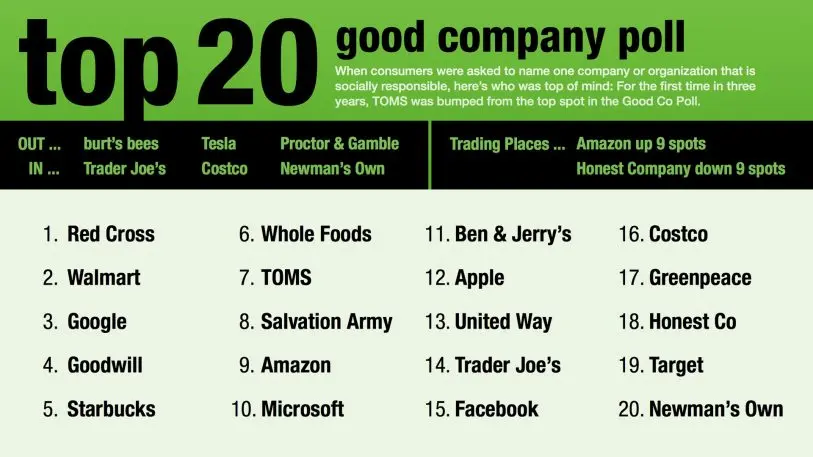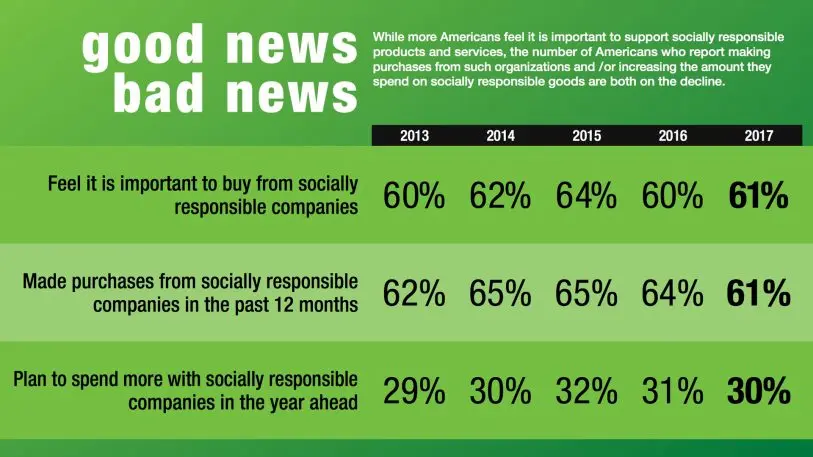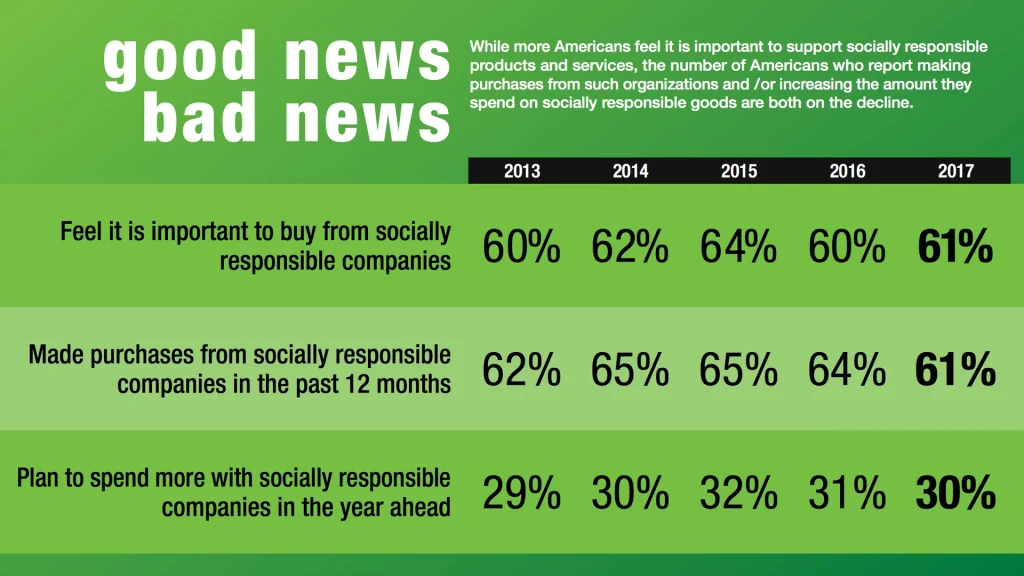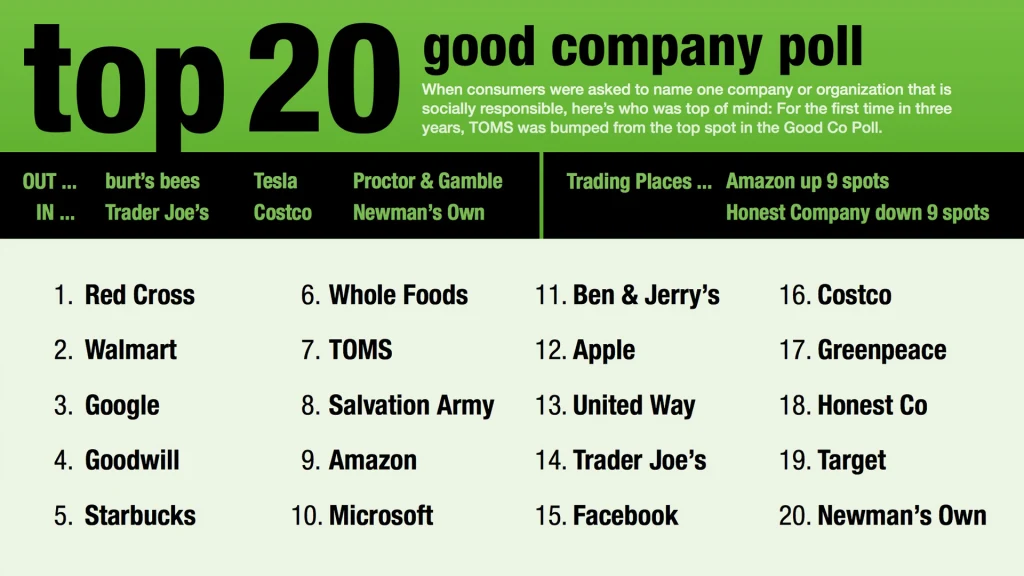Americans have diverse views of what a socially responsible company or organization looks like.
Asked to name a responsible brand in a recent survey, many respondents said Toms, Whole Foods, Starbucks–all known as socially conscious companies. Many also said Walmart, Amazon, and Target, which are just big companies. And a handful said the National Rifle Association. Almost a third (30%) of respondents couldn’t name any socially responsible company, the poll of 1,000 Americans found.
“We don’t have enough iconic brands like Toms, Whole Foods, Starbucks– bigger brands that are noted as socially conscious, ” says Heath Shackleford, founder of Good.Must.Grow, the marketing agency behind the annual survey.

The group’s Conscious Consumer Spending Index tracks sentiment toward responsible brands, looking at the importance consumers place on using socially responsible companies, support for responsible products and services, and future spending intent. The #CCSIndex has stayed largely at the same level over five years, now at 47 out of 100.
More than 60% of Americans say it’s important to buy from socially responsible companies. The same percentage has bought from socially responsible companies in the last 12 months. But just 27% say they spend more than 50% of their income with responsible brands.

“There’s a group that hasn’t seen much action yet. We’re going to see a big difference when you see socially responsible brands move the middle over the top of the mountain. These people are just waiting to be activated,” Shackleford says.
The survey showed some correlation between apathy levels and willingness to spend with socially responsible companies. Those respondents who were the least engaged–who said the state of the world was about the same as ever–were 19% less likely to support socially responsible companies, 16% less likely to give to charity, and 16% less likely to volunteer, than those with a “positive” outlook.
“When you don’t see how you can be the change in the world, it impacts how far you are prepared to go to support good companies,” Shackleford says. “If there’s too much negativity, you shut down a little bit. You’re not as motivated or hard-charging to go out and make a difference.”
It’s hard to know whether to be optimistic or pessimistic about the poll. On one hand, solid majorities of people think companies should be responsible and many consumers are happy to spend with these companies. On the other, almost half (47%) of respondents said the world was getting worse; one third couldn’t name a single socially responsible company; and another third doesn’t seem to care. Make of it what you will.
Recognize your brand’s excellence by applying to this year’s Brands That Matter Awards before the early-rate deadline, May 3.




